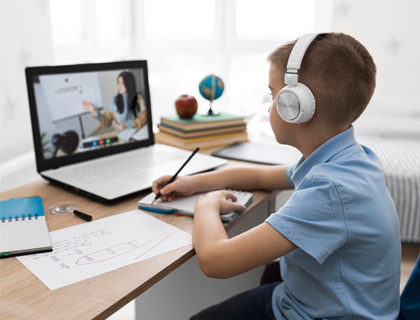Blog details
 Vernacular And Education
Vernacular And Education
Vernacular and Education
Language is an important aspect of intellectual, emotional and social life of an individual. It is almost impossible to remain monolingual in today’s highly interconnected world. In addition to the mother tongue, the language a child learns to articulate his first verbal responses, one learns a second language and sometimes even a third language in school. The medium of instruction in schools largely determines which language a child will predominantly communicate in. Children are increasingly becoming dependent on one language for their day-to-day interactions. Due to greater preference for English medium education, this language is invariably English, especially among urban population. The internet has also strengthened monolingual tendencies among youngsters.
Research shows that there is a definite correlation between linguistic diversity and cognitive capabilities. A study by the University of Reading in the UK showed that children who spoke one language at school but their native tongue at home scored better in intelligence tests than those who spoke only one non-native language. This gives parents a good reason to talk with their children in the mother tongue at home rather than any other language. It has become very common nowadays to find children speaking in English with their parents who deliberately enforce this habit.
In a country like India which has incredible linguistic heritage it is indeed a sad state of affairs. For émigré Indian kids this problem is an even more acute one. Surrounded since birth by people who speak a different language than their parents’ native tongue, Indian kids born and brought up abroad unfortunately remain alienated from the rich traditions of a native Indian language.
The National Education Policy 2020 recognises the importance of vernacular in primary education. It advocates making a child’s mother tongue the medium of instruction till grade 5. Though there are numerous inherent challenges in implementing this well-meaning proposal, it is a positive step towards recognizing the role of vernacular in education. If present trends continue, children might become entirely monolingual in coming decades and that would be a linguistic disaster we can ill-afford.



